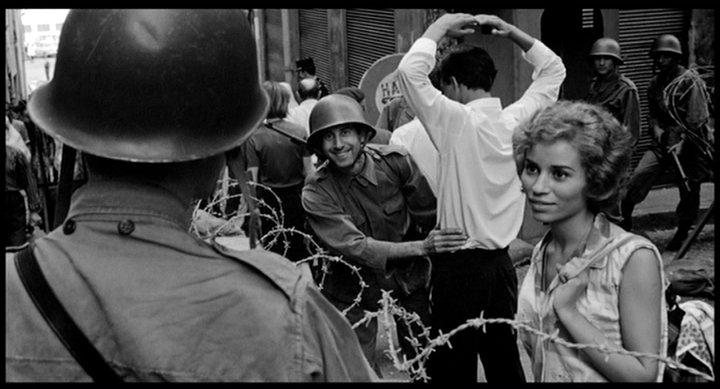In an interview about his film Do the Right Thing [Lee, 1989], Spike Lee made some interesting points regarding both the criticism his film received and the film’s relevance in today’s society. He explained how many critics seemed to misinterpret the message of his film, with their remarks often reflecting racist views. This also gives us the chance to take note of the important role that media can play publicizing important social questions in an accessible medium. Lee had a lot to say about the misguided criticisms that followed the release of Do the Right Thing. Critics seemed to ignore much of the film’s important social commentary about racism and mistreatment of minorities, while focusing on the potential backlash from blacks who could have found the film offensive. In reality, these reactions themselves demonstrate some of the same elements of intolerance and prejudice that Lee aimed to address by making the film.
Do the Right Thing was released twenty six years ago, but it could have been released yesterday and it would still be just as relevant. There are some disconcerting parallels between the death of Radio Rahim in the film and the recent death of Eric Garner. Both Rahim and Eric Garner were choked to death by New York police who used excessive force to subdue unarmed individuals. Though both men were arrested for breaking the law, race played an undeniable role in their untimely deaths. We can’t necessary understand the mindsets of the police officers who killed Eric Garner. He did have an extensive criminal record and was clearly resisting arrest. However, we can take note of the role that civilian-recorded video of Garner’s death has played in igniting social critique and awareness in situations like these.
With the increase of portable video cameras in recent years, we have seen that it does not take a multi-million dollar film to have an impact on society. The cellphone videos of Garner’s death allowed for an unfiltered and largely unbiased window into the events that occurred. As we’ve recently discussed, film and media are a means of transmitting information in a way that transcends most barriers. Regardless of your race, language or social views, concrete video of an event can have an enormous impact on how it is interpreted. As screens and video-recorders continue to saturate our society, we can expect the dynamics of crime, news, and politics to change. The actions of both criminals and authorities will be under increasing scrutiny in years to come. Its too early to say what impact this technological expansion will have in enforcing accountability for crime and punishment. However, if we remain aware of the inherent power that media has, perhaps progress can be made in moving towards a more tolerant, informed, and responsible society. The unbiased nature of raw video is a potent and invaluable tool.

http://politic365.com/2012/03/19/trayvon-martin-and-7-black-men-who-should-be-alive-today/
Obviously this is a huge problem in today’s society, and these are just the deaths that got the most coverage. It is frightening to think about the amount of other unlawful killings of minorities that just simply don’t get the press. You see things like this almost on a daily basis and media like both this movie and the extensive coverage about racial injustice in the recent media make it seem like it should just be accepted when in reality, no violence or hate should be tolerated.